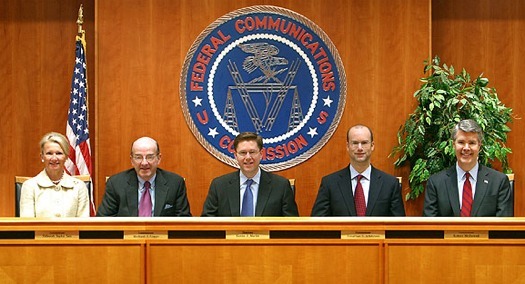Will the new FCC Chair’s mindset and instincts be forward-looking, toward more Internet innovation and progress, or nostalgic for the FCC’s telephone regulatory heydays of yesteryear?
Whoever the president nominates to be the new FCC Chair would be wise to not get boxed in on these issues until she/he learns whether or not the FCC actually enjoys the legal authority to do what these advocates want.
Importantly, the Supreme Court currently is considering whether or not to continue to grant legal deference to federal regulatory entities like the FCC when they are deciding matters that effectively self-arbitrate the boundaries of their own legal authority.
Equally important to determining the actual boundaries of the FCC’s authority going forward is a D.C. Court of Appeals decision, on Verizon’s challenge of the FCC’s 2010 Open Internet Order mandating net neutrality regulation of broadband Internet service. Both of these court decisions could largely delineate how much policymaking power the FCC enjoys in the Internet Age.
In the absence of any significant net neutrality problems in the broadband industry, and until the Supreme Court and D.C. Court of Appeals rule, the new FCC Chair would be wise to maintain a forward-looking FCC mindset.
What’s the biggest risk to the new FCC Chair’s tenure? It would be falling into the nostalgia trap that the FCC must restore its past glory and power by applying its original and now obsolete 1934 monopoly telephone regulatory authority to the modern unregulated Internet.
If the courts eventually rule that the FCC in fact does not have the expansive regulatory authority over the Internet that it used to enjoy over the legacy telephone monopoly of the past, the FCC need not take the law into its own hands by trying to reclassify broadband as a telephone-regulated service.
If the FCC determines it needs additional legal authority for the Internet Age, it can ask Congress for it formally and publicly justify why it is necessary.
If the D.C. Court of Appeals does indeed rule against the FCC (as many expect, including Public Knowledge), the nostalgists’ recommendation to thwart the potential will of the court by reclassifying broadband as a telephone-regulated service, presents great peril for the new FCC Chair.
First, it could put the new FCC Chair at serious odds with the Court, Congress, the rule of law, and the Constitution. If the D.C. Court of Appeals rules the FCC does not have authority to regulate unregulated broadband Internet services, it simply does not have the authority it wants until it either convinces the Supreme Court to rule that it has the authority or it persuades Congress to legislatively grant it new authority.
Given that any FCC Chair must swear an oath to uphold the U.S. Constitution, advising the FCC Chair to ignore and thwart the D.C. Court of Appeals would unnecessarily and irresponsibly put the FCC institutionally at risk. Potentially disobeying or trying to game a seminal Federal Appeals Court decision would be no trifling matter.
Second, it is a publicly untenable position. On one hand the FCC cannot argue that it is moving the nation forward by promoting competition, investment, innovation and progress, while on the other hand arguing that the best way to move forward is to go backward decades in time.
How would it be progress or pro-competition/innovation, to apply 1887 common-carrier railroad regulation to the modern Internet when we haven’t regulated railroads that way since 1976, Bus-lines or trucking that way since 1980, or airlines that way since 1984? As the public switched telephone network (PSTN) becomes obsolescent, telephone common carrier regulation becomes obsolescent along with it.
How is it pro-innovation or progress for the FCC to go back and apply monopoly telephone price regulation to unregulated competitive broadband providers?
How soon we forget that rigid telephone monopoly regulation led to little innovation in telephone service for ~50 years; and it delayed the commercialization of cell-phones for ~33 years, Internet packet-switching and PC modems for ~25 years, and broadband service for ~17 years.
Third, it would require the FCC to contort itself beyond credulity. To reclassify unregulated broadband information services as a regulated telephone service, would require the FCC to admit and argue that most everything it has done and decided over the last decade was dead wrong and must be done over.
In other words, the FCC would have to explain why over a decade of its facts, reasoned arguments, and legal precedents were all wrong, and why the FCC should be trusted now to adopt a diametrically opposite legal position when nothing material has changed in the marketplace to warrant it, and when the only thing that has really changed would be the legal boundaries of FCC’s authority.
It would be exceedingly difficult for the FCC to argue that such an obviously self-serving ruling would not be legally arbitrary or capricious.
Fourth, applying telephone interconnection price regulation to Internet routing would break the Internet. Telephone and Internet are opposite technologies. Telephone technology is circuit-switched, continuous, predictable, centralized and regulated, while Internet technology is packet-switched, discontinuous, unpredictable, decentralized and unregulated.
Ramming a square peg into a round hole would break both.
Lastly, reclassification of broadband as a telephone service would be a 180 degree reversal from the near unanimous bipartisan consensus of the last several months to not let the UN’s ITU regulate the Internet like a telephone service. How could the new FCC Chair be able to convince anyone that the only the FCC should be able to regulate the Internet, but not any other country or the ITU? Such a radical and self-serving flip-flop would make the FCC and the U.S. a laughing stock in communications circles.
In sum, FCC Chair could not face a starker strategic choice between a nostalgic FCC-centric mindset and a modern Internet-centric mindset.
The nostalgic strategic trajectory would be one fraught with exceptional legal, technological, political, investment, and business conflict, risk and uncertainty. The modern strategic trajectory is one of continued investment, innovation, collaboration, growth and progress.
May the new FCC Chair choose wisely.
[First Published at The Daily Caller]





